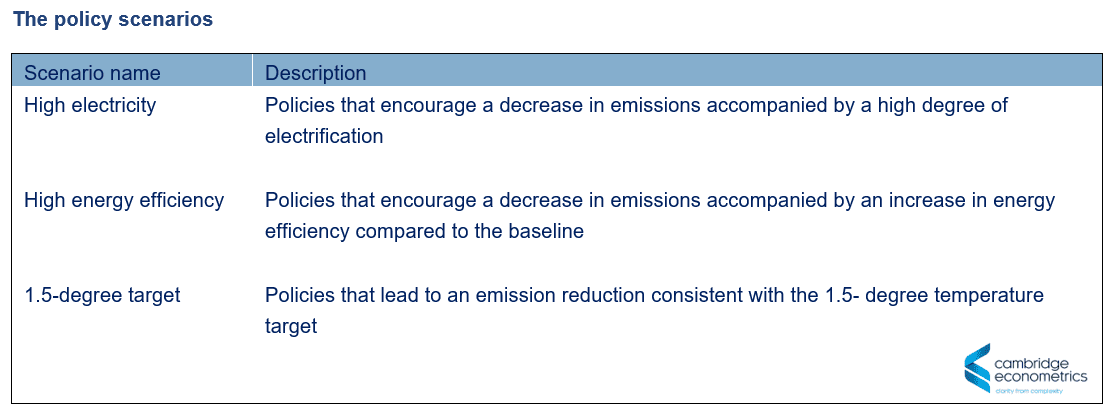EU sets ambitious zero carbon target
Today, EU climate commissioner Miguel Arias Cañete announced that the EU intends to achieve a zero carbon European Union by 2050.
The economic analysis behind the policy announcement was undertaken by Cambridge Econometrics and shows that a zero carbon European economy could be more prosperous.
The announcement comes as the European Union sets out its negotiating position ahead of the major United Nations Climate Change (COP24) meetings next week in Poland.
Yesterday the UN emissions gap report revealed the first increase in carbon emissions globally for four years and ramps up the pressure on policy makers to take urgent, bold action on carbon emissions to avoid calamitous global climate change.
The economics behind the zero-carbon announcement
The European Commission asked Cambridge Econometrics to assess the economic impact of three main policy scenarios to inform its position:

What does the EU’s 1.5-degree target mean for the EU28 economy in 2050?
GDP
- GDP is expected to increase compared to the baseline
- The increase in GDP is driven by increased investment in energy efficiency and power sector renewables, as well as higher consumer expenditure
Employment
- Employment increase in all three scenarios, with the jobs being created in energy efficiency and renewables outweighing the jobs lost in the fossil fuel industry
This is a good news story for the economy, but with carbon emissions increasing for the first time in years, yet again, policy makers are under pressure to take urgent action.